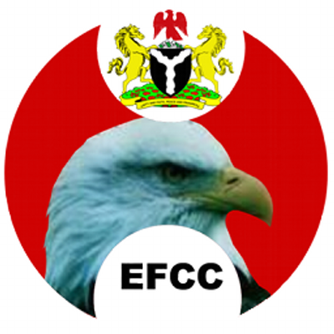In Nigeria’s ever-evolving political theater, the fight against corruption especially that of politically exposed person has often been portrayed as a high-stakes game with a low positive outcome or justice. This claims has been assented to by the crude and body-bag approach used by the agency over the last two decades in their modus operandi. However, recent developments in the case involving former Kogi State Governor, Yahaya Bello suggest that, the Anti-graft agency is yet to change their skin and it’s increasing become clear as snow to everyone with a brain cell as small as mustard seed to see that, former Governor Yahaya Bello case with EFCC may have been be rigged before it even commenced, with the Economic and Financial Crimes Commission (EFCC) seemingly dribbling itself into confusion and unveiling their ulterior motives, while certain powerful cabals pull the strings from behind the scenes.
The result? A reinforcing damaging perception which is known to all Nigerians in the last two decades that, the EFCC which was set up as a fearless anti-graft institution with a clear mandate of bringing corrupt individual into justice has become a tool for political manipulation, unable to deliver justice, and appearing shambolic in its handling of high-profile cases.
Mistakes and confusion in the Yahaya Bello case study:
A peculiar case has been brought by the EFCC against former governor Yahaya Bello. The commission had been making it known for months that, Bello was being investigated for financial misconduct that occurred while he was a sitting Governor between 2016 – 2024. Accusations of financial mismanagement, corruption, and money laundering hung over him, with billions of naira allegedly at the center of the controversy.
Yet, despite initial enthusiasm for the case, the EFCC has stumbled. Public interest in the case has been met with an opaque investigation process, and the EFCC’s indecisiveness has allowed Yahaya Bello and his legal team to maintain an air of confidence, effectively painting themselves as victims of a politically motivated witch-hunt with an evidence clear to the public.
Dribbling Themselves: EFCC’s Loss of Direction
In the Yahaya Bello case, it is becoming more obvious that, the EFCC has lose track of direction. They have become like a scalar quantity. Timing, coherence, and strategy are critical components of any criminal investigation. The EFCC’s incapability to maintain pressure and advance with a compelling case points is already adding catastrophic effect to an organization already in disarray, beset by internal strife or outside factors that hinder it from carrying out its mandate in a way that is efficient and effective.
This case is indicative of a larger trend where the EFCC occasionally appears to be operating against its own interests. In this context, it becomes difficult not to question the level of independence the EFCC truly enjoys.
Cabals and Political Interference: Undermining the Anti-Corruption Fight
One of the most troubling aspects of the EFCC’s seeming ineptitude is the belief that, the powerful political cabals are pulling the strings behind the scenes. In the case of Yahaya Bello, rumors have swirled around that, certain influential figures in the corridors of power are working to ensure that the former governor is shielded from accountability.
These cabals, deeply embedded within Nigeria’s political structure, have historically acted to protect their interests, using state institutions like the EFCC as instruments of control. When the agency acts, it does so at the behest of these hidden forces, often turning a blind eye to corruption when politically convenient and acting aggressively when it suits a particular agenda.
The EFCC seems to have been compromised in this setting, acting more like a pawn in the greater political chess game than as an agent of justice. Yahaya Bello’s case is a perfect illustration of how this dysfunctional system manifests itself in real life. The agency has been mired in a cycle of indecision rather than taking decisive action, which has benefited those who want to preserve the status quo.
The Shambolic Image of the EFCC
The cabal influence has left the EFCC looking shambolic, reducing public trust in its operations. The organization, which was formerly thought of as the nation’s leading anti-graft organization, is now more linked to political manipulation, incompetence, and inconsistency. Nigerians who once believed in the EFCC’s mission are beginning to lose faith, seeing the institution as another cog in the machinery of power, rather than a beacon of hope in the fight against corruption.
The EFCC’s unwillingness to take swift action in cases similar to Yahaya Bello’s conveys the incorrect message that justice can be twisted. This not only erodes confidence in the agency but also emboldens corrupt officials, who now see a way to evade accountability through connections and influence.
Scoring an Own Goal: The Broader Consequences
In Yahaya Bello’s case, the EFCC has created an effective own goal by letting political actors meddling into her affairs and cabal influence control its actions. Instead of becoming a leader in the field of justice, the organization has missed a chance to have a significant influence. By doing this, it has compromised its authority and damaged its reputation by giving influential political figures the upper hand.
This has consequences that go beyond the Yahaya Bello case. The EFCC impedes the wider campaign against corruption in Nigeria whenever it falters or gives the impression that it is under the influence of outsiders. It fits with the narrative that the nation’s anti-graft initiatives amount to little more than political theater, with the real struggle being not against corruption but rather for control and power and taming the politically exposing person who are not in the white book of the cabals.
An Approach for the Future?
The EFCC needs to act more independently, transparently, and decisively if it hopes to regain its reputation and come out from under the cabal’s influence. The agency needs to make it very apparent that, it is not subject to political pressure and that everyone is subject to the law, regardless of their level of influence and societal standing.
The Yahaya Bello case represents a critical juncture for the EFCC. The agency must stop dribbling itself, stop scoring own goals, and start playing for the team that matters most – the Nigerian people. Only then will it have a chance to regain its standing and significantly advance the nation’s ongoing anti-corruption campaign.
 Hottestgistnaija.com
Hottestgistnaija.com





